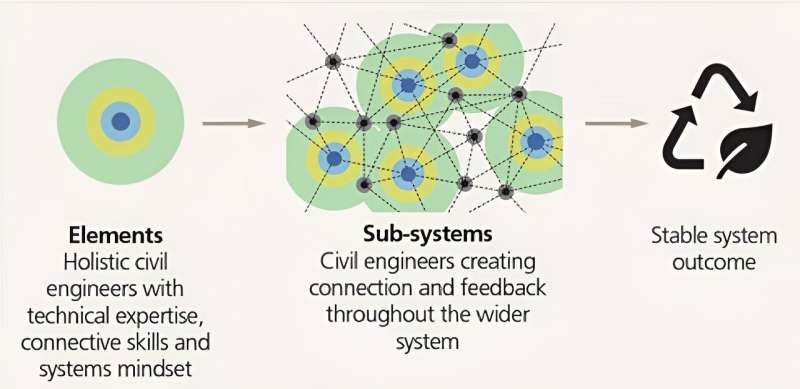The required paradigm: Civil engineers generating myriad sources of feedback as part of a stable system. Credit: Proceedings of the Institution of Civil Engineers - Civil Engineering (2023). DOI: 10.1680/jcien.23.00108
Nick Francis, a Senior University Teacher at the Department of Civil and Structural Engineering, has co-authored, with Esther Norton, a new research article on educating civil engineers in the twenty-first century and proposed a new teaching model to empower future engineers to meet human needs in the context of climate and biodiversity crises.
The paper is published in the journal Proceedings of the Institution of Civil Engineers—Civil Engineering.
The "new-model engineer" will break free from the "bounded rationality" that characterizes the traditional siloed approach to education. Instead, they will develop a holistic understanding of civil engineering as part of a wider socio-environmental system. This change will be enabled by rebalancing teaching across the three domains of learning, valuing skills and behaviors as well as pure technical knowledge.
"New-model" engineers will have knowledge of engineering fundamentals, outstanding connective skills and holistic systems thinking that will empower them to be a responsible part of a more stable socio-ecological system. The approach represents a sea change in civil engineering education, which the authors believe represents the most exciting opportunity for the profession in two centuries.
More information: Nick Francis et al, Educating civil engineers for the twenty-first century: the 'new-model engineer, Proceedings of the Institution of Civil Engineers—Civil Engineering (2023). DOI: 10.1680/jcien.23.00108
Provided by University of Sheffield























